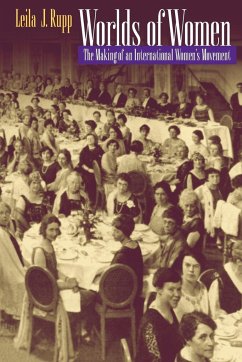Worlds of Women is a groundbreaking exploration of the "first wave" of the international women's movement, from its late nineteenth-century origins through the Second World War. Making extensive use of archives in the United States, England, the Netherlands, Germany, and France, Leila Rupp examines the histories and accomplishments of three major transnational women's organizations to tell the story of women's struggle to construct a feminist international collective identity. She addresses questions central to the study of women's history--how can women across the world forge bonds, sometimes even through conflict, despite their differences?--and questions central to world history--is internationalism viable and how can its history be written? Rupp focuses on three major organizations that were technically open to all women: the broadly based and cautious International Council of Women, founded in 1888; the feminist International Alliance of Women, originally called the International Woman Suffrage Alliance, founded in 1904; and the vanguard Women's International League for Peace and Freedom, which grew out of the International Congress of Women that met at The Hague in 1915. The histories of these organizations, and their stories of cooperation and competition, shed new light on the international women's movement. They also help us to understand the different but connected story of the second wave of international feminism that emerged from the ashes of World War II.
Hinweis: Dieser Artikel kann nur an eine deutsche Lieferadresse ausgeliefert werden.
Hinweis: Dieser Artikel kann nur an eine deutsche Lieferadresse ausgeliefert werden.
This fine study by Leila J. Rupp addresses the surprisingly neglected topic, at least until recently, of the international women's movement. . . . The sheer scale of research entailed is daunting to contemplate. . . . A clear, concise account of the formation of [three major international women's groups] and of the relationships among them is provided in the introductory section. Thereafter, the structure of the narrative is built with great precision along the elegant line of analysis that Rupp offers as to the significance, achievements, and limitations of 'international sisterhood' during the interwar period.








